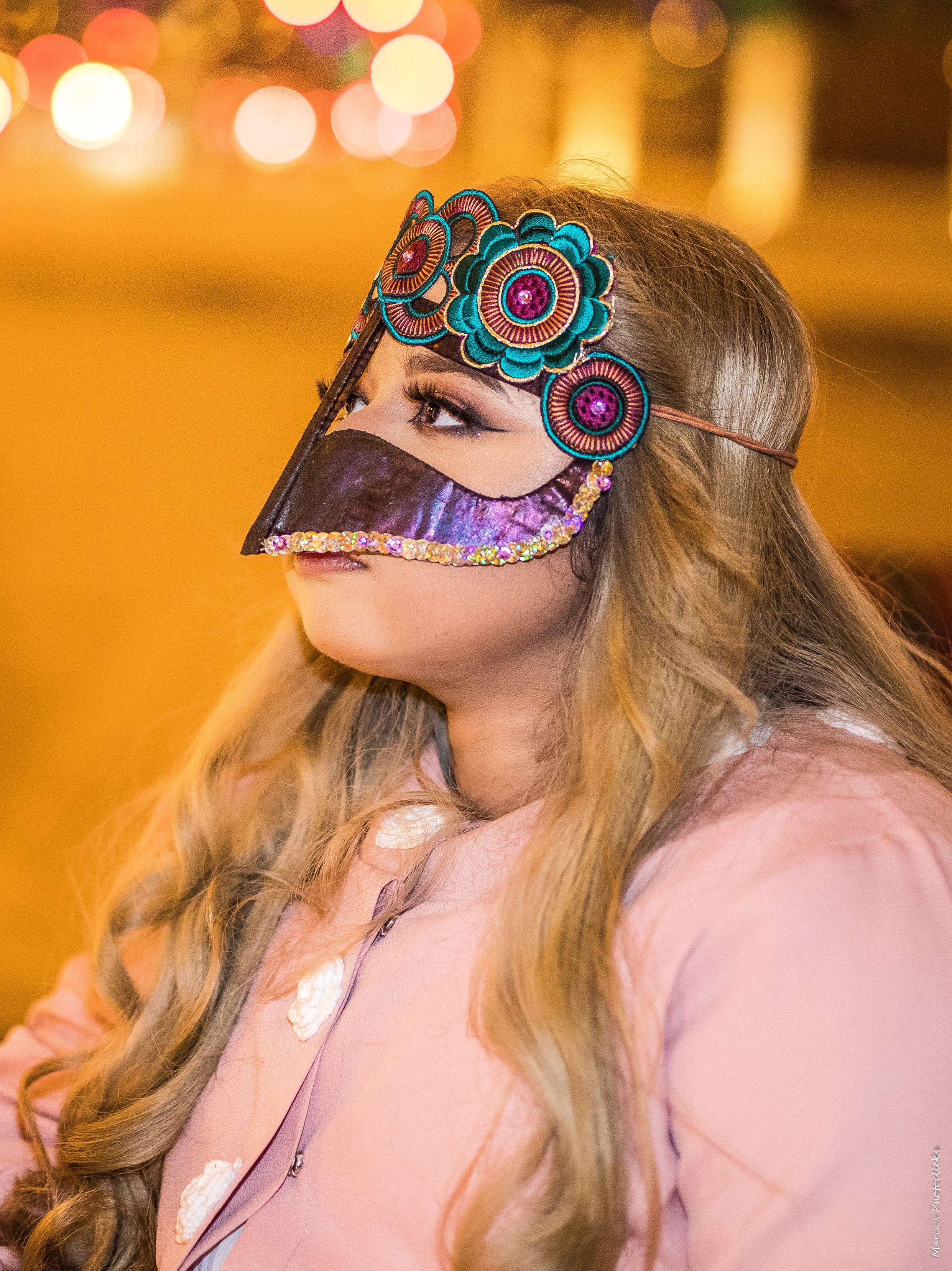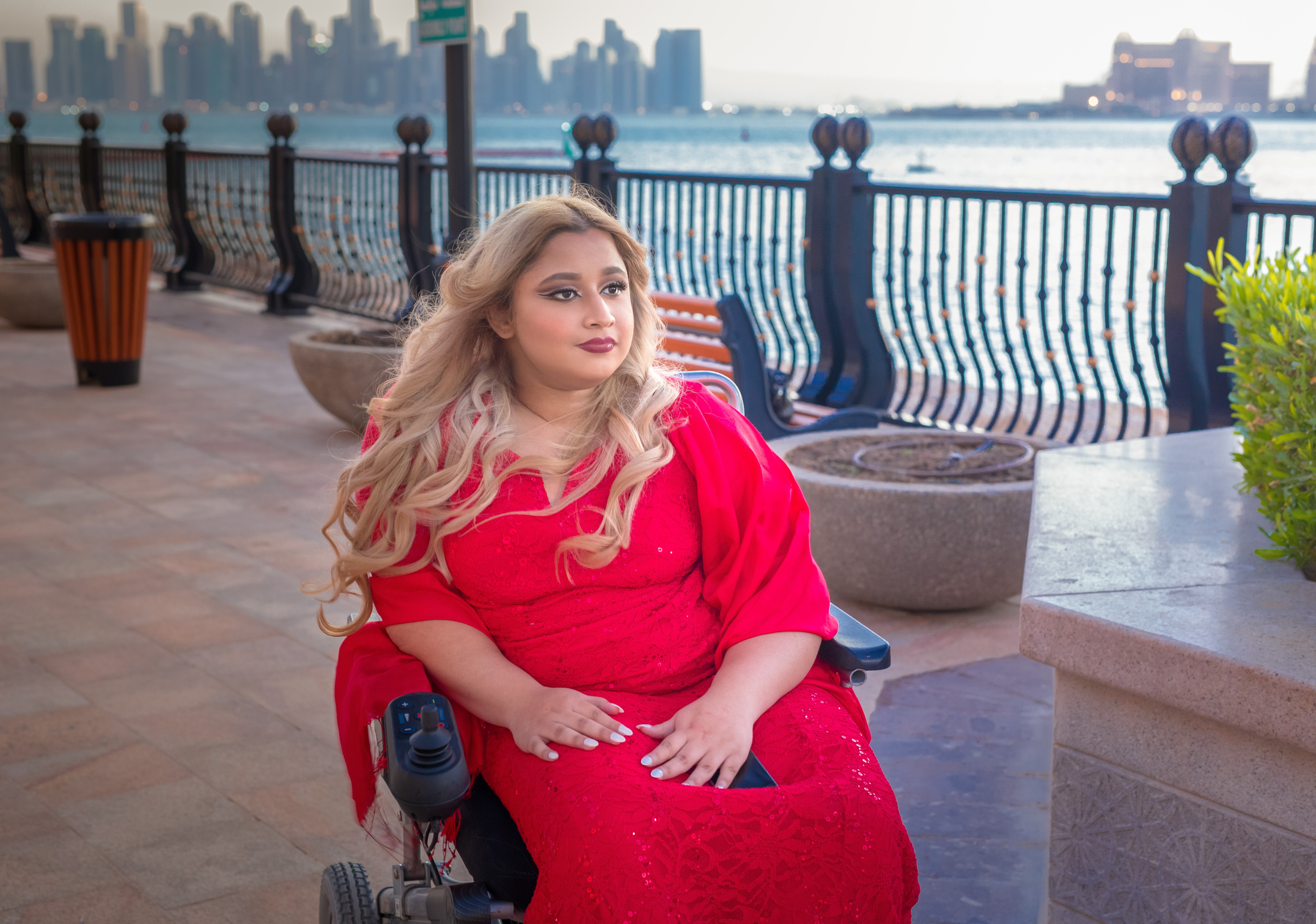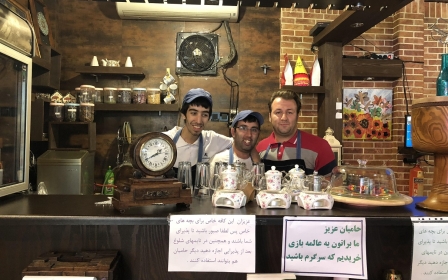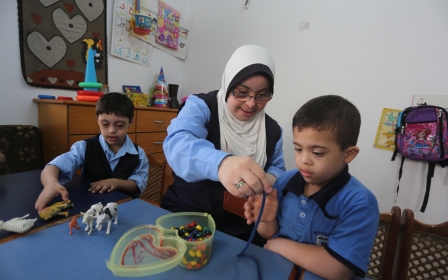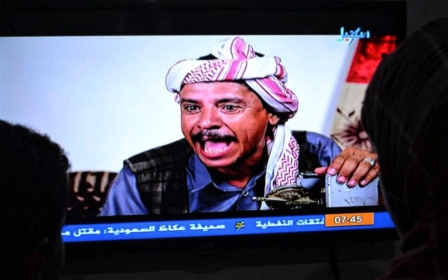'Give us respect': Qatar's comedy queen speaks out
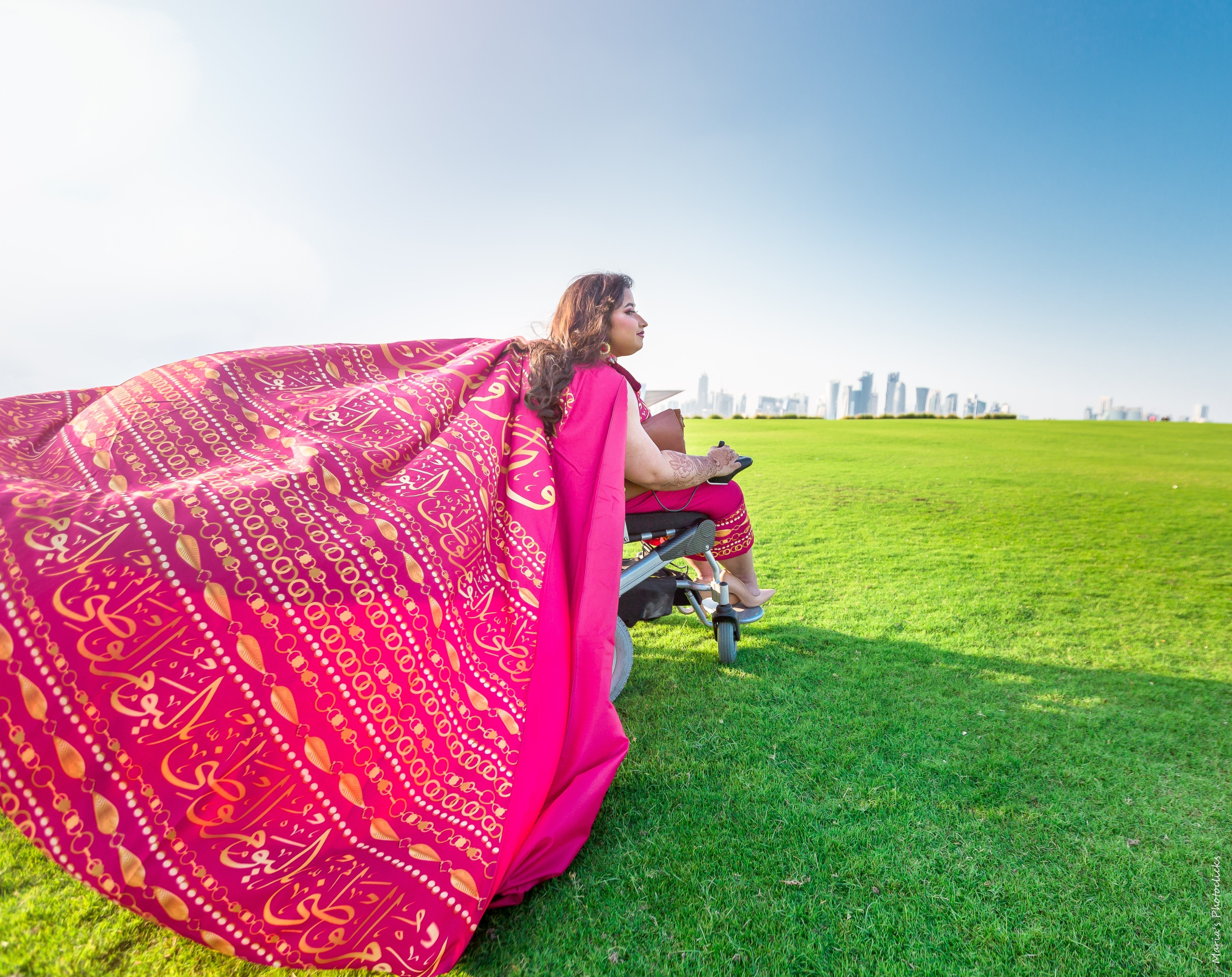
One of six children born to Pakistani parents in Doha, the Qatari capital, Nawaal Akram had struggled with her health from an early age. Back then, she thought that whatever the problem was, it would eventually go away.
Yet things only worsened. At the age of six, she was diagnosed with Duchenne Muscular Dystrophy, a disorder which weakens and degenerates the muscles.
Life-changing
At the age of ten, living with what she calls as an invisible disability, she was forced out of school. The decision hit her hard: “When the school told me that I couldn’t stay on, I left crying. It’s a memory that stays with me to this day,” she told Middle East Eye. After breaking her leg at 12, she was wheelchair bound.
New MEE newsletter: Jerusalem Dispatch
Sign up to get the latest insights and analysis on Israel-Palestine, alongside Turkey Unpacked and other MEE newsletters
Her parents tried to enrol her in another school, but to no avail.
And yet, in just six years, Akram has set up an organisation to raise awareness on disability issues in Qatar, made a name for herself on the local comedy circuit, worked as a model and conducted Paralympian training.
The BBC listed her among their 100 most influential women two years ago and at the beginning of this year, she was invited to give a Ted talk. In short, this is a woman who is going places.
Pushing for rights
Speaking from her home in Doha, Akram told MEE about her vision of breaking down barriers, promoting disability awareness and pushing for rights in her country and across the Middle East.
“There are many countries that have misrepresented people with disabilities but Qatar is a young country and we can learn from these mistakes,” she says.
'I don’t want anyone to go through what I’ve gone through, so this push for change is needed for history not to repeat itself'
- Nawaal Akram
“I was born and raised in Qatar and I want to move things forward on this issue here. I don’t want anyone to go through what I’ve gone through, so this push for change is needed for history not to repeat itself.
“I was too special for normal school and too normal for special school because my disorder was physical and not mental. My parents tried hard to get me into schools but I wasn’t accepted, either because I had a disability or because of my Pakistani nationality."
Akram says that, despite being born there, the fact that she does not have Qatari nationality left her without access to the support that citizens of the gas-rich emirate enjoy. "If I was Qatari and disabled, then the schools and organisations would have accommodated me; they made that very clear from the beginning. I was just a child so I didn't really know the meaning of racism and discrimination, so I didn’t know how to react.”
Technology as a tool
After years of rejection, her parents decided to take a different approach and encouraged Akram to try different activities like art and yoga.
She began volunteering at a tech-based organisation called Mada, a non-profit disability organisation in Qatar that seeks to “connect people with disabilities to the world of information and communication technology”. Things started to develop for Akram from there.
“I began meeting so many cool people and learning about how technology works as a tool for social change. I realised I could use it to raise awareness around disability,” she says.
She started visiting hospitals, meeting other parents of children with disabilities and documenting her experiences on Instagram and Twitter.
“People started contacting me to find out more and my online followers grew. I was getting recognised as someone talking about this subject in the community.
"Some people got annoyed, saying this was a shameful topic and that I shouldn’t say anything. But I didn't think it was shameful, I just thought people should know about this.”
Stand-up
Humour, she says, has a played a big part in helping her handle her challenges. After she was forced out of school, she started watching endless comedy shows, with the African-American comedian Dave Chappelle becoming one of her favourites.
In the last few years, as well as posting humorous tweets about her experiences and disability issues, she has performed at Stand Up Comedy Qatar, a big comedy event in the country.
'The first show was awkward. Some people got my dark humour about disability and laughed, others seemed too afraid to laugh'
- Nawaal Akram
“Humour is a very good communication skill and watching those shows really helped me develop mine. I knew there was a comedy store here and I messaged them to say that I wanted to perform.
“The first show was awkward. Some people got my dark humour about disability and laughed, others seemed too afraid to laugh. I’m sure people were thinking what do I laugh at, her jokes or her disability, and I was thinking, laugh at both!”
Her second show, she says, was different. “I knew what to expect and realised why they were afraid to laugh. I used jokes like ‘laughter is like a fart, let it go’ and ‘I’m a stand-up comedian who can’t stand up’."
Her performances, which look at life in Qatar as well as her personal life, became popular and attracted local media attention. “My material is original and no-one is saying what I’m saying, so that made people come back to the shows.
"Afterwards, people said they felt more relaxed and understood that disability is often made a much bigger thing than it needs to be.”
The activist
In 2016, Akram founded the support group Muscular Dystrophy Qatar, where she raises awareness around disability rights, offers advice to parents who have children in the same position, and pushes for further research.
“It's really hard to reintegrate people with disabilities once they are out of the education system and I meet too many adults in the same situation. International schools in Qatar are not really held accountable for their actions so they keep discriminating against people who are physically challenged.
'You cannot get rid of issues by hiding them under the rug, you must confront them, deal with them and fix them'
- Nawaal Akram
"Lots of universities in Qatar are accessible and there are better programmes, which is great, but how does someone who is born and brought up here go from school to university if the beginning of their life is not accepted.”
She has also been pushing for the inclusion of ramps for accessibility in schools, getting children with disabilities re-admitted into education, and created a medical form so anyone who has muscular dystrophy in the Arab region can fill it out and be contacted in the future.
"We contact them later on if they want to know more. This may lead to a wider database.”
Qatar doesn’t record data on the number of people living with disabilities, but Akram says her condition, a genetic muscle disorder, is very common across the country and the Middle East.
“Qatar has enough big medical facilities to accommodate research on this. It’s hard because we need a specific amount of people who want to make the research happen, but there’s still a lot of stigma around it and people not knowing that the problem even exists.”
A commitment to change
Another key goal for Akram is to challenge stereotypes associated with people with disabilities. She has been involved in a number of modelling projects, including a fashion shoot for Qatari brand Fanilla Couture and a fine art photography project designed to show a “more beautiful image of disability but with a cultural twist”.
Despite these successes, she admits it has not been easy.
“I’ve been contacted by agencies who want me to work for free. They are paying other people, so why not pay me? It’s very annoying at the moment but I’m aware of that while at the same [time] pushing for more representation.”
She says it’s her overall commitment to change that sees her through any difficulties.
“After the comedy events, people would ask what we should give people with disabilities - and I just say give us respect. There is so much shame attached to it, so people don’t know how to interact, but eventually, people realise it’s just about respect.
"This is why I’m so vocal. You cannot get rid of issues by hiding them under the rug, you must confront them, deal with them and fix them. Hopefully, maybe because my story is out there, we will be able to push for accountability, and push other Middle Eastern countries to do better.”
Middle East Eye delivers independent and unrivalled coverage and analysis of the Middle East, North Africa and beyond. To learn more about republishing this content and the associated fees, please fill out this form. More about MEE can be found here.


